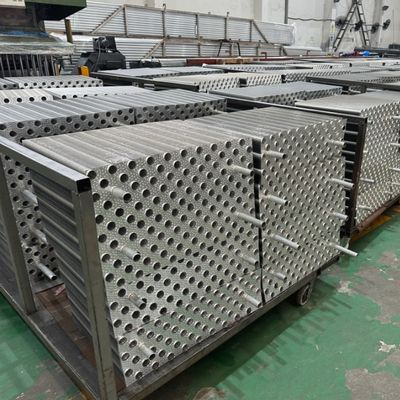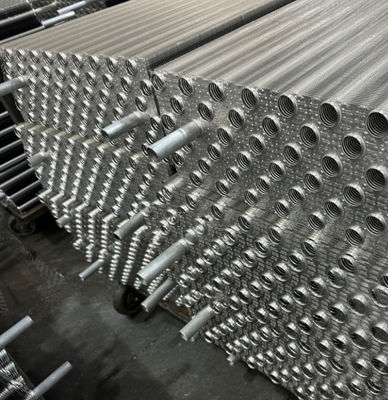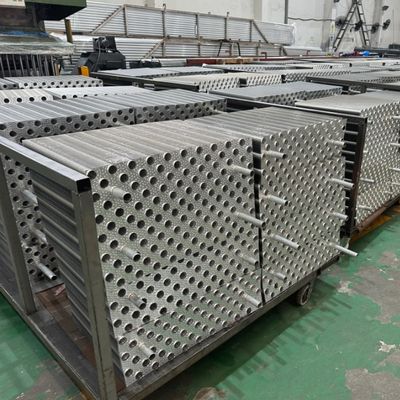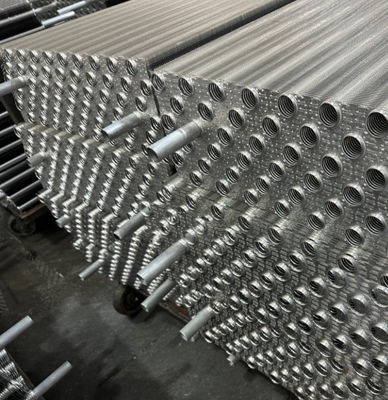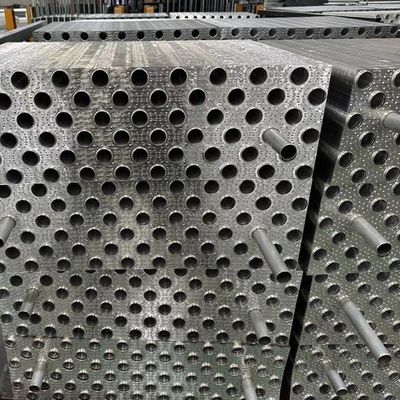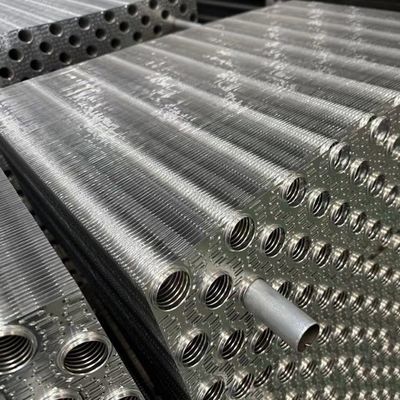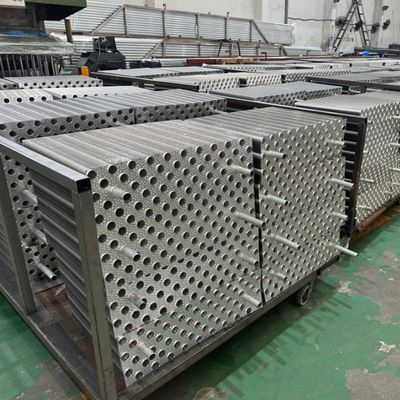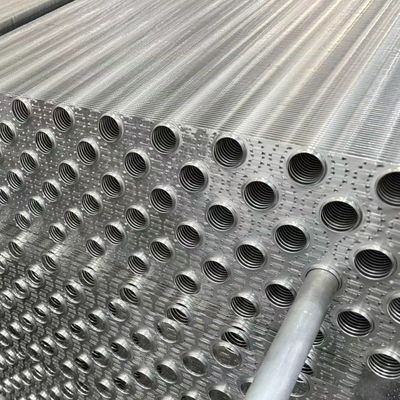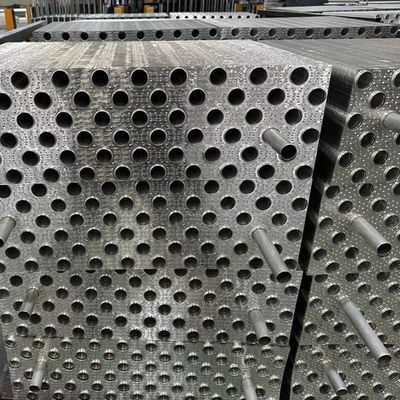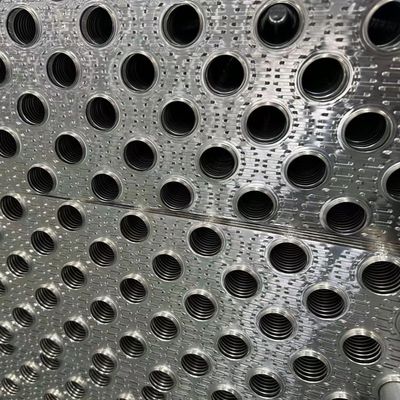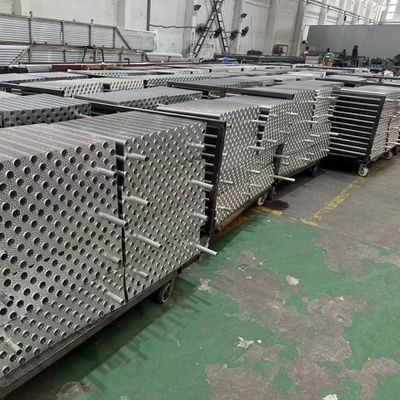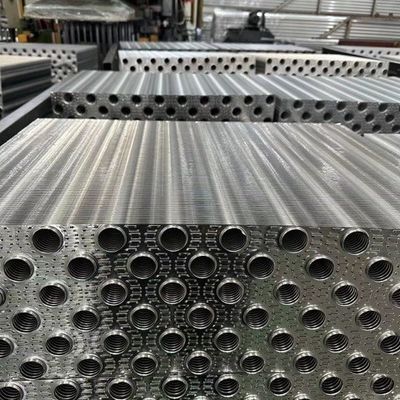14.3mm Anticorrosive Louvered Fins Aluminium High Heat Transfer Performance Condensing Louvers 34*29.5
| Place of Origin | Made in Changzhou, China |
|---|---|
| Brand Name | YUN NENG |
| Certification | SO9001 ISO14001 ISO45001 |
| Model Number | FA8X16 |
| Minimum Order Quantity | negotiation |
| Price | negotiation |
| Packaging Details | Standard export packaging |
| Delivery Time | 30 working days after received your down payment |
| Payment Terms | T/T |
| Supply Ability | negotiation |

Contact me for free samples and coupons.
Whatsapp:0086 18588475571
Wechat: 0086 18588475571
Skype: sales10@aixton.com
If you have any concern, we provide 24-hour online help.
x| Material | Aluminum | Fin Type | Louvered (frond And Rear) |
|---|---|---|---|
| Fin Mold | Φ14.3 | Pattern/mm | 34*29.5 |
| Available Fin Type | Louver,Raised Lance,Lance,Flat | Specification | According To The National Standards Or According To Customer Special Requirements For Customization |
| High Light | 14.3mm Louvered fins,Anticorrosive Louvered fins,external aluminium louvres 34mm |
||
Specification For Φ14.3 Anticorrosive Aluminium High Heat Transfer Performance Condensing Louvers 34*29.5
Product description:
The window's fin's purpose
To effectively transmit heat from the fluid tube side to the gas on the fin side, more surface area is provided by the fins.In the heat exchanger itself, it is crucial.
One of the most often used heat exchangers in gas and liquid heat exchangers is the finned radiator.By including fins on the common tube, it can improve heat transfer.
All methods of fin enhancement actually help with heat transfer by making the air move more and increasing the surface area, but they might work differently for certain things.
The spacing and height of the fins in a finned-tube heat exchanger primarily influence the ratio of fin-to-fin and fin-to-tube, as well as the film heat transfer coefficient of the fluids both inside and outside the tubes, which are closely related.
If there is a significant difference in the heat transfer coefficient between the inner and outer surfaces of the tube, it is recommended to choose a finned tube with a higher fin ratio, especially in applications such as steam heating air.When a phase change occurs on one side of the medium, the heat transfer coefficient will differ significantly. For instance, when hot air is exchanged with cold air and the hot air cools below the dew point, a finned tube heat exchanger can be used. However, when there is no phase change in the heat transfer between air and air, or water and water, bare pipes are usually preferred.
Certainly, the use of low-finned tubes is also possible, as they have a relatively low heat transfer coefficient, and strengthening either side can improve their effectiveness. However, an excessive fin ratio may not yield significant benefits. To optimize the contact area, it is recommended to use threaded or grooved tubes that strengthen both the inside and outside simultaneously.
Features:
Louvered fins have a design that is commonly used
Fins are important components in heat transfer systems, as they increase the surface area available for heat transfer and improve efficiency. Louvre fins, in particular, are designed with notches that enhance air turbulence in a specific direction. As the angles of the louvres become steeper, their heat transfer performance improves until a certain point, after which their efficiency begins to decrease.
One critical factor to consider with louvre fins is their directional nature, which is similar to shark skin. The orientation of the louvres must be precise to ensure optimal performance, as improper directionality can actually hinder efficiency rather than enhance it.
Heat transfer: Excellent
Fouling/clean ability: Poor
Durability: Moderate
Original louver fins
The original louver fins feature varied fin types that enable optimal heat transfer. This design also facilitates simplified geometry, enhanced heat dissipation, and minimal pressure drop.
Yun Neng Group is devoted to providing high-precision, aluminum-based new materials and components for the global refrigeration, heating, and new energy industries. The company is committed to scientific and technological innovation, cultivating cutting-edge industrial technology, and consistently empowering industry customers and partners for mutual benefit.
Techical Parameters :
Tube-fin type air conditioning condenser and evaporator Specifications
| Fin mold | Pattern/mm | Fin type | |||
| Φ7 | 21*12.7 | Louver | Raised lance | Lance | Flat |
| Φ7 | 21*18.19 | louver | Raised lance | Lance | V-wave |
| Φ7.94 |
21*21.65
|
louver on waffle | V-wave | ||
| Φ10.2 |
20*15.5
|
Turbolator
|
|||
| Φ12.3 |
25*21.65
|
Turbolator
|
|||
| Φ12.3 |
32*27.71
|
Turbolator
|
|||
| Φ14.3 | 34*29.5 |
Turbolator
|
|||
| Φ14.3 | 34*29.5 | Raised lance | |||
| Φ25.45 | 64*32 | Upper&lower lance | |||
| Φ25.5 | 66.6*32.25 | Raised lance | |||
| Φ9.52 | 25*21.65 | Louver | |||
Support and Services:
Fin, micro-channel cooling tube and collector tube can be customized according to customer's special requirements, product width can be customized, length and direction can be arbitrarily adjusted to meet different application scenarios.
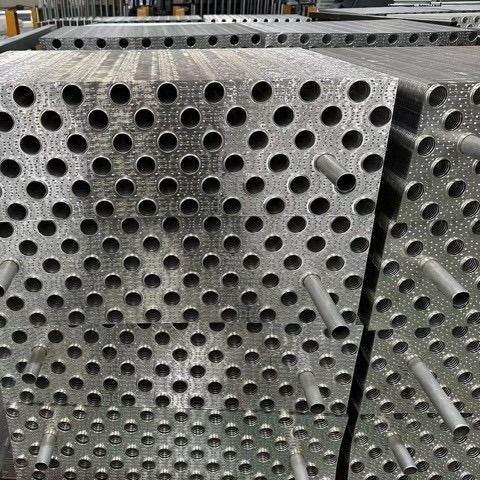
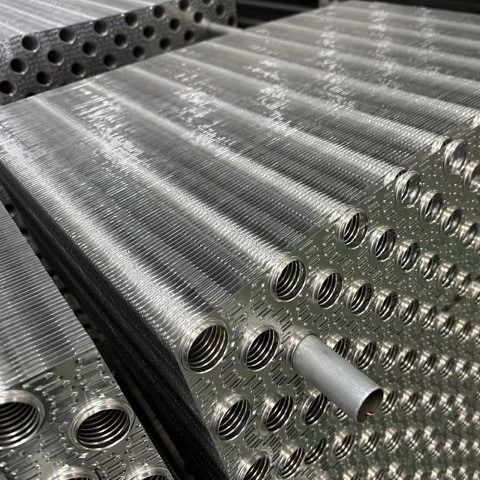
FAQ:
Q1: What kind of material alloy is the product?
A1: At present, it can produce 1 series industrial aluminum alloy, 3003 and 3103 aluminum manganese alloy, and 6 series aluminum alloy.
Q2: What state and performance of the aluminum pipe can be produced?
A2: can produce from hard state to soft state and interval performance products
Q3: Can I customize the product specifications and requirements?
A3: Different materials and products with different requirements can be customized according to the requirements
Q 4: What is the minimum starting order volume?
A 4: The minimum order volume is 3 tons.




